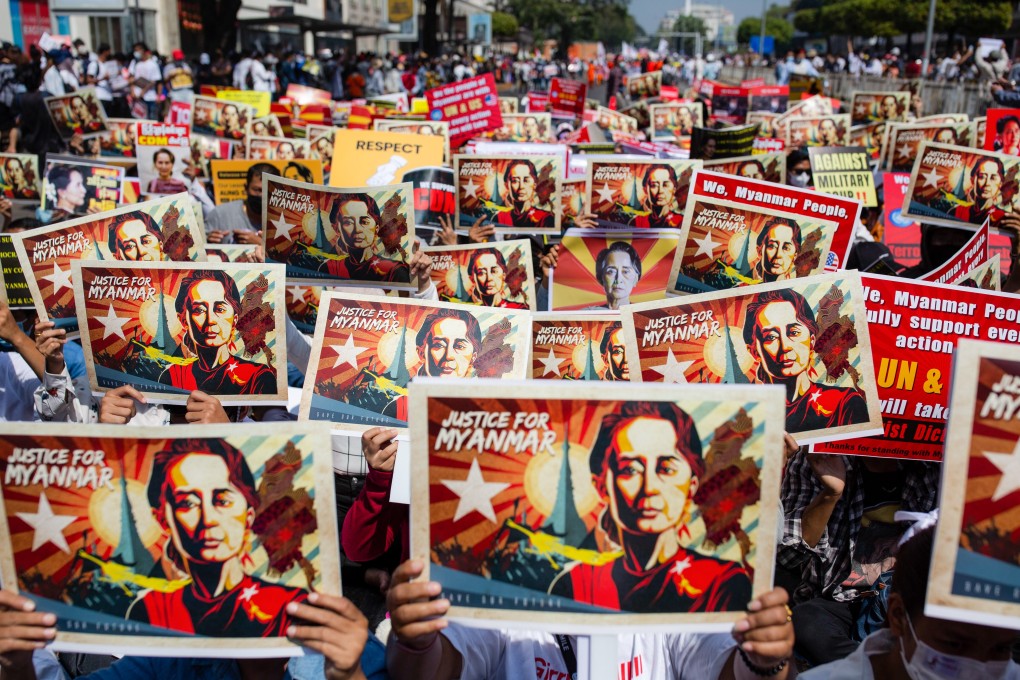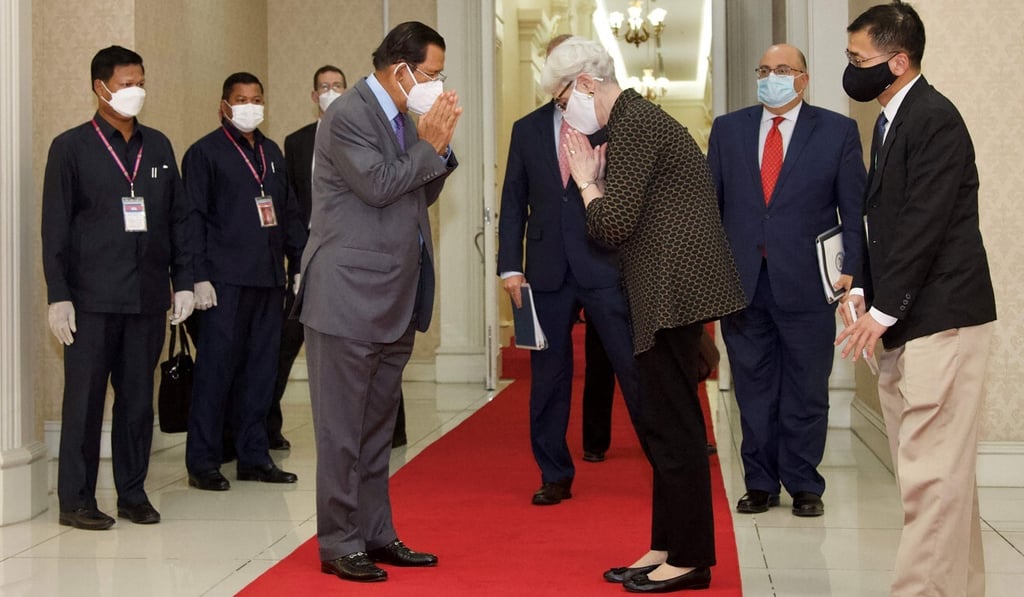Advertisement
US confident in Asean’s plan for post-coup Myanmar. Others, not so much
- ‘Diplomacy takes time’, says US Deputy Secretary of State Wendy Sherman on maiden visit to Southeast Asia as she lends support to the bloc’s five-point proposal to defuse the crisis
- Her backing comes amid reports that Indonesia and Thailand are at loggerheads over the matter
Reading Time:3 minutes
Why you can trust SCMP
1

The number two US diplomat on Wednesday said Washington remained confident in Asean’s five-point consensus plan to defuse Myanmar’s post-coup crisis, even as criticism mounts over the blueprint’s failure to take off nearly six weeks after it was agreed.
The vote of confidence from Deputy Secretary of State Wendy Sherman stood in sharp contrast to downcast remarks by unnamed Association of Southeast Asian Nations diplomats quoted in a news report a day earlier who claimed the bloc was “haemorrhaging” amid internal sniping over the matter.
Speaking to regional journalists, Sherman acknowledged frustration over the lack of progress, saying “we all wish results would take place yesterday”.
Advertisement
But “we also understand that sometimes diplomacy needs to take time to make sure that all the ducks are in the row [so that] we can proceed forward and reach success,” Sherman said in the telephone briefing.
Sherman was speaking from Bangkok in Thailand, following visits to Jakarta in Indonesia, and Phnom Penh in Cambodia, in what was her maiden trip to Southeast Asia since being confirmed by the US Senate on April 14.
Advertisement

Advertisement
Select Voice
Select Speed
1.00x